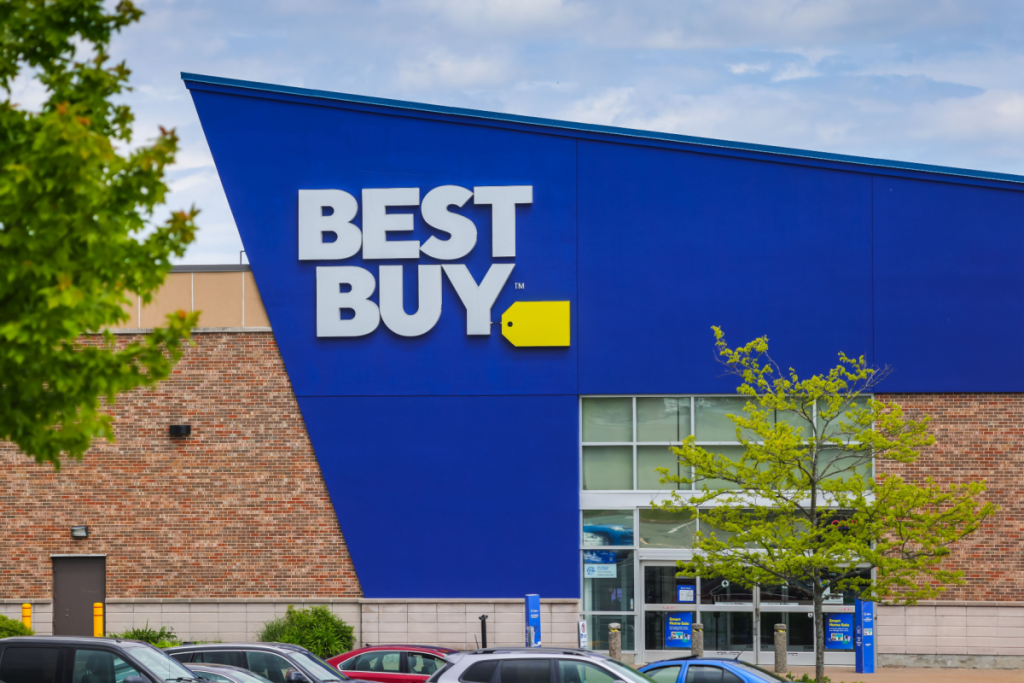Best Buy reported stronger-than-expected second-quarter results on Thursday, with revenue and earnings both surpassing Wall Street forecasts. However, the electronics retailer maintained its full-year guidance, citing ongoing tariff-related uncertainty and consumer caution around big-ticket purchases. Shares fell nearly 5% in early trading as investors weighed the outlook.
Quarterly Performance
For the three months ending August 2, Best Buy posted adjusted earnings per share of $1.28, beating analyst expectations of $1.21. Revenue came in at $9.44 billion versus $9.24 billion expected, marking growth from $9.29 billion a year earlier. Net income fell to $186 million, or 87 cents per share, from $291 million, or $1.34 per share, in the prior year. Comparable sales rose 1.6%, the company’s strongest growth in three years, driven by higher demand in computing, gaming, and mobile phones.
Tariffs and Full-Year Outlook
CEO Corie Barry said Best Buy is “increasingly confident” about the second half of the year but highlighted tariff uncertainty as a risk. The company expects full-year revenue between $41.1 billion and $41.9 billion, with adjusted EPS of $6.15 to $6.30, unchanged from prior guidance. CFO Matt Bilunas cautioned that shoppers may delay purchases in the third quarter as they wait for holiday promotions. While tariffs did not materially impact Q2 results, Best Buy has already raised prices on select products to offset rising costs.
Category Highlights
Computing marked its sixth consecutive quarter of growth, including the highest second-quarter laptop sales in 15 years. Gaming also exceeded expectations, boosted by the June launch of the Nintendo Switch 2, which generated strong in-store traffic and online pre-orders. By contrast, sales of appliances, home theaters, tablets, and drones were weaker. To address slower categories, Best Buy plans to sharpen price points, adjust merchandise, and expand staffing, including relying more on vendor partners like Apple and Samsung to support in-store sales.
Innovation and Customer Experience
Barry emphasized that Best Buy’s performance improves when product innovation is strong. The company is testing new in-store experiences, including kitchen and laundry room showrooms with Ikea in 10 stores, and product demos with Breville and SharkNinja. It has also introduced AI-enabled fitting stations for Ray-Ban and Oakley sunglasses. Online sales grew 5.1% year over year, representing about one-third of U.S. revenue. Barry said customers remain “resilient but deal-focused,” underscoring the importance of sales events and promotional strategies.
Despite beating quarterly expectations, Best Buy faces persistent challenges from tariffs, shifting consumer behavior, and softness in certain product categories. With innovation-driven demand in laptops and gaming consoles showing promise, the retailer is betting on a mix of promotions, partnerships, and in-store experiences to sustain momentum through the back half of 2025 and into the crucial holiday season.


